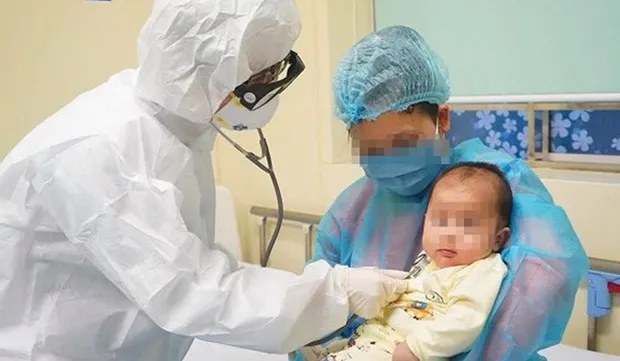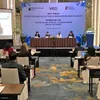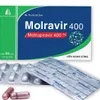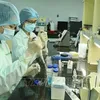MoH issues new guidelines on diagnosis and treatment of COVID-19 in children

The number of children infected with COVID-19 has tended to increase recently. The new guidance has replaced the one issued on November 8, 2021. Under the new guidance, the ministry has changed the instructions on confirmed cases of children with COVID-19.
A child identified as a COVID-19 patient has tested positive for SARS-CoV-2 by real-time polymerase chain reaction (RT-PCR) test; has been in close contact with a COVID-19 case and has a positive rapid test result for SARS-CoV-2; a child who has epidemiological factors or clinical symptoms suspected of being COVID-19 and a positive rapid test result of SARS-CoV-2; or a child with epidemiological factors and test results positive for SARS-CoV-2 twice within eight hours.
In the previous guidance, confirmed cases are defined as all cases with suspected symptoms and a positive test result for SARS-CoV-2 by RT-PCR. Also following the new guidance, the ministry has added the level of asymptomatic in children with COVID-19. Thus, there are five levels of asymptomatic, mild, moderate, severe and critical levels in children with COVID-19.
The new guidance also regulates treatment with the antiviral drug Remdesivir to treat children with mild cases of COVID-19. Accordingly, Remdesivir is indicated for the treatment of mild inpatients with at least one risk factor, or patients with respiratory failure requiring oxygen, continuous positive airway pressure (CPAP), high-flow nasal cannula (HFNC) or non-invasive ventilation. In the previous guidance, it did not regulate the use of the drug to treat children with mild symptoms.
The ministry also said that children with COVID-19, who have mild risk factors, need to be considered for treatment at a medical facility.
There are 14 risk factors that could cause severe illness for a child with COVID-19, consisting of premature babies and low birth weight; obesity and overweight; diabetes, genetic diseases and metabolic disorders; chronic lung diseases and bronchial asthma; cancer; chronic kidney disease; organ transplant or haematopoietic stem cell transplant; cardiovascular disease; neurological diseases; sickle cell disease, thalassaemia, other chronic haematological diseases; congenital or acquired immunodeficiency diseases; liver failure; systemic diseases; and children treated with corticosteroids or other immunosuppressive drugs.
According to the ministry, SARS-CoV-2 causes illness in both adults and children but it is less common in children.
However, recently, the number of children infected with COVID-19 has been increasing. The majority of children with COVID-19 are asymptomatic or mild with upper respiratory or gastrointestinal symptoms (over 55 percent), moderate (40 perent), severe (4 percent) and critical (0.5 percent).
Infants under 12 months are at high risk for severe illness. Children with COVID-19 usually have mild symptoms, so hospitalisation and death rates are low compared to adults.
Multisystem inflammatory syndrome in children (MIS-C) with COVID-19 is rare, occurring between two and six weeks after SARS-CoV-2 infection. This is a serious complication that can be fatal and tends to increase, the ministry said./





